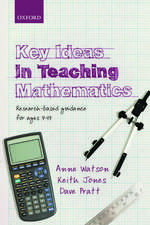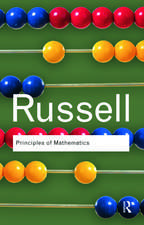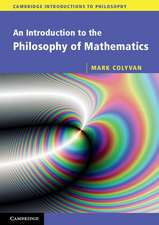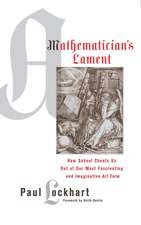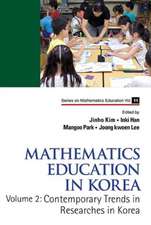Mathematics Education as a Research Domain: A Search for Identity: An ICMI Study Book 2: Glaukom, cartea 4
Autor Anna Sierpinska, Jeremy Kilpatricken Limba Engleză Paperback – 3 oct 2013
| Toate formatele și edițiile | Preț | Express |
|---|---|---|
| Paperback (4) | 385.84 lei 6-8 săpt. | |
| SPRINGER NETHERLANDS – 21 apr 2014 | 385.84 lei 6-8 săpt. | |
| SPRINGER NETHERLANDS – 13 noi 2013 | 386.22 lei 6-8 săpt. | |
| SPRINGER NETHERLANDS – 3 oct 2013 | 391.02 lei 6-8 săpt. | |
| SPRINGER NETHERLANDS – 31 ian 1998 | 655.60 lei 6-8 săpt. | |
| Hardback (1) | 1244.59 lei 6-8 săpt. | |
| SPRINGER NETHERLANDS – 31 ian 1998 | 1244.59 lei 6-8 săpt. |
Preț: 391.02 lei
Nou
Puncte Express: 587
Preț estimativ în valută:
74.83€ • 77.68$ • 62.40£
74.83€ • 77.68$ • 62.40£
Carte tipărită la comandă
Livrare economică 22 martie-05 aprilie
Preluare comenzi: 021 569.72.76
Specificații
ISBN-13: 9789401061872
ISBN-10: 9401061874
Pagini: 348
Ilustrații: IX, 335 p.
Dimensiuni: 155 x 235 x 18 mm
Greutate: 0.49 kg
Ediția:1998
Editura: SPRINGER NETHERLANDS
Colecția Springer
Seria Glaukom
Locul publicării:Dordrecht, Netherlands
ISBN-10: 9401061874
Pagini: 348
Ilustrații: IX, 335 p.
Dimensiuni: 155 x 235 x 18 mm
Greutate: 0.49 kg
Ediția:1998
Editura: SPRINGER NETHERLANDS
Colecția Springer
Seria Glaukom
Locul publicării:Dordrecht, Netherlands
Public țintă
ResearchCuprins
I: The ICMI Study Conference.- Discussion Document.- List of Participants.- What is the Specific Object of Study in Mathematics Education? Report of Working Group 1.- What are the Aims of Research in Mathematics Education? Report of Working Group 2.- What are the Specific Research Questions or Problématiques of Research in Mathematics Education? Report of Working Group 3.- What are the Results of Research in Mathematics Education? Report of Working Group 4.- What Criteria Should Be Used to Evaluate the Results of Research in Mathematics Education? Report of Working Group 5.- Research, Effectiveness, and the Practitioners’ World.- II: Mathematics Education as a Research Discipline.- A Glance Over the Evolution of Research in Mathematics Education.- Balancing Complex Human Worlds: Mathematics Education as an Emergent Discipline in its Own Right.- A Postmodern Perspective on Research in Mathematics Education.- Mathematics Education as a ‘Design Science’.- What is Mathematics Education? A Survey of Mathematics Educators in Canada.- Programs for the Education of Researchers in Mathematics Education.- III: Goals, Orientations and Results of Research in Mathematics Education.- The Aims of Research.- Aiming Research Toward Understanding: Lessons We Can Learn From Children.- Transforming the International Mathematics Education Research Agenda.- Clarifying the Meaning of Mathematical Objects as a Priority Area for Research in Mathematics Education.- Research and Results in Mathematics Education: Some Contradictory Aspects.- Models in Mathematics Education Research: A Broader View of Research Results.- Towards a Cognitive Theory of Practice.- IV: Different Research Paradigms in Mathematics Education.- Italian Trends in Research in Mathematical Education: A National CaseStudy from an International Perspective.- The Paradigm of Modeling by Iterative Conceptualization in Mathematics Education Research.- Developmental Research as a Research Method.- Practitioner Research and the Construction of Knowledge in Mathematics Education.- On the Generation of Basic Ideas and Individual Images: Normative, Descriptive and Constructive Aspects.- Research on Socio-Cultural Perspectives of Mathematics Teaching and Learning.- Relations between the Theoretical Field and the Practical Field in Mathematics Education.- Researching from the Inside in Mathematics Education.- The Social Organization of Research Programs in Mathematical Sciences Education.- Mathematics Education Research as Socially and Culturally Situated.- V: Evaluation of Research in Mathematics Education.- Evaluating Research Papers in Mathematics Education.- Basic Criteria for Research in Mathematics Education.- The Ship of Theseus and Other Metaphors for Thinking about What We Value in Mathematics Education Research.- Ethics in Mathematics Education Research.- VI: Mathematics Education and Mathematics.- A Mathematician’s View of Research in Mathematics Education: An Interview with Shimshon A. Amitsur.- What Should be the Output of Mathematical Education?.- Research in Mathematics Education Through the Eyes of Mathematicians.- The Many Faces of Mathematics: Do Mathematicians and Researchers in Mathematics Education Speak about the Same Thing?.- Epistemological Constraints of Mathematical Knowledge in Social Learning Settings.- Continuing the Search.- Notes on Authors.
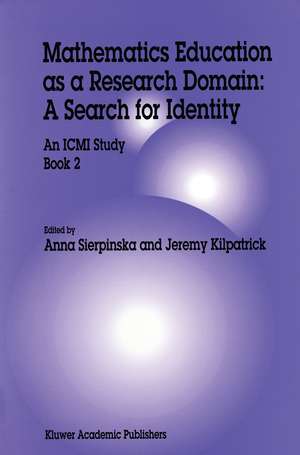




![Maths Frameworking -- Pupil Book 3.1 [Third Edition]](https://i2.books-express.ro/bt/9780007537778/maths-frameworking-pupil-book-3-1-third-edition.jpg)





